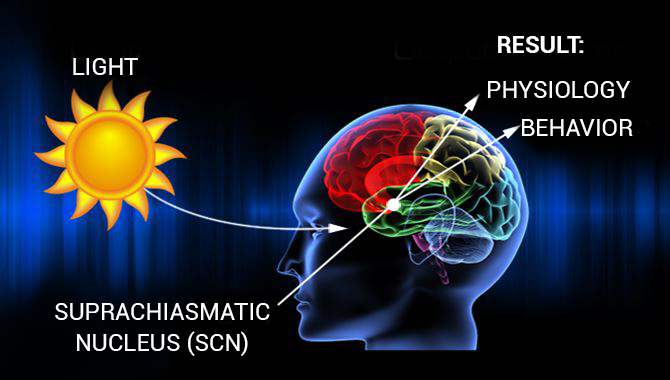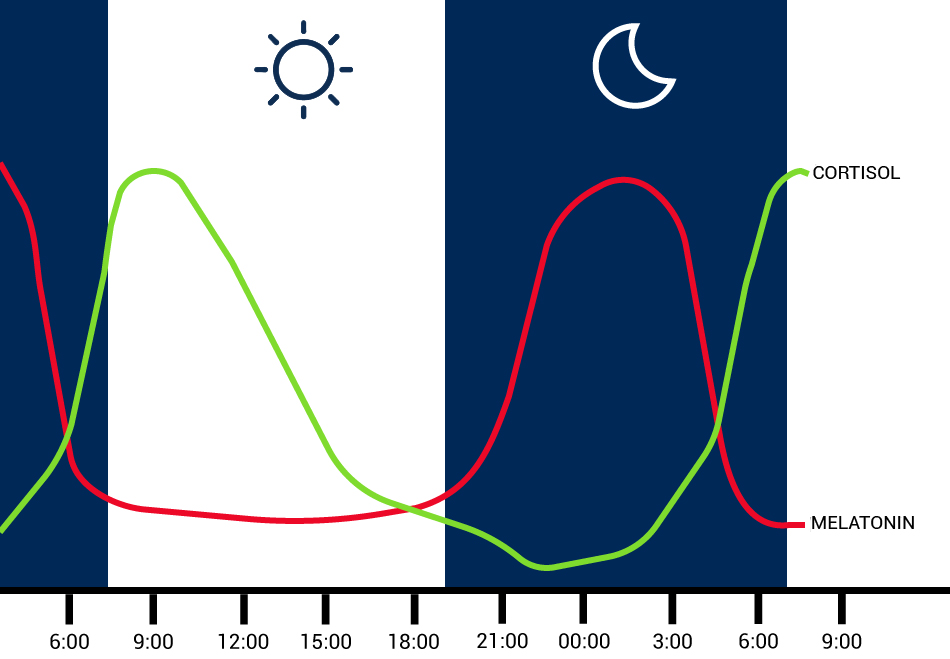About CHRONOBIOLOGY
CHRONOBIOLOGY is the science that analyzes the rhythmical and regular fluctuation of the functions of human organism during the day called biological (circadian) human rhythms. Depending on the time of the day, the human physiological condition is changing cyclically (blood pressure, body’s temperature, amount of various substances in blood, etc.) together with intellectual possibilities and mood: during the day we have energy to work, while late in the evening we are sleepy and ready to have rest.
For the first time in history Chronobiology was mentioned in 1729 when the French scientist J. J. d'Ortousde Marian during experiment noticed the tendency of the plants to open leaves and blossoms during daytime and to close them at night. Upon having proved the existence of biological (circadian) rhythms in live nature, he put the foundation for modern chronobiology. At present many laboratories and research institutes are researching human biorhythms and creating the means to balance the detuned organism.
ABOUT BIOLOGICAL RHYTHMS
The part of the brains called hypothalamus plays the role of biological clock in the human organism. The hypothalamus receives direct information about change from light to dark and vice versus from the optic nerves and is responsible for release of the main regulator of circadian rhythm – hormone melatonin.

Melatonin, also called sleep hormone, acts as a released spring of our internal biological clock. It activates or inhibits release of other hormones (growth hormone, prolactin, cortisol).
The growth hormone determines body’s growth processes in childhood and adolescence. When the person grows up, the hormone becomes important for circulation of mineral substances, fats, carbohydrates, and proteins, and what is particularly important, it regulates the release of thyroidal hormones, heart’s and kidneys’ functions, and psychological condition.
Another important hormone, which release is regulated by melatonin, is prolactin. It affects immunity as slows down the metabolism and allows the organism to have rest.
The generation of melatonin is directly related to neuromediator serotonin, also called hormone of happiness.
Melatonin has a twin cortisol. The illustration shows, how the cycle of day and night affects concentration of melatonin and cortisol in our blood.

When the concentration of melatonin decreases in the morning, the amount of cortisol increases. It prepares the body and mind for activeness of the approaching day (the tone of blood vessels is increased, which leads to increased blood pressure, more frequent heart’s work, inducement of metabolism, etc.).
The entire process seems quite simple, but the single light flash at night can stop generation of melatonin. This happens because the optic nerves send the signal to hypothalamus and it stops making melatonin.
In case of deficiency of melatonin it is difficult to get asleep. Therefore in order to maintain normal biological rhythm other substances are needed, for example, certain amine acids, minerals, and vitamins. Each substance that gets into the organism and acts at a certain time has a positive complex impact on the organism.
HOW DO WE FEEL WHEN THE BIOLOGICAL RHYTHMS GET DISORDERED?
As the contemporary daily life has a fast pace, is full of stress, as we eat irregularly, as the smart phones become an integral part of the life, it is quite difficult to live according to the natural biological clock. The changes of the biological clock become evident when the sources of artificial light are used, when we travel across various time zones, as we work at night, etc.
The biological rhythms are changing with the aging process because the generation of melatonin gets weaker with age. The person feels constant tension, fatigue, the concentration decreases, and sleep gets disordered.
Video material prepared by the University of Oxford about the circadian rhythms:
TELL US HOW IT WORKS!
